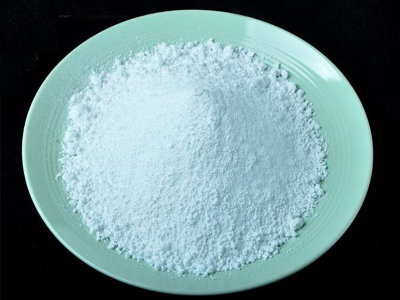Exploring Barium Carbonate: A Versatile Player in the Industrial Realm
Exploring Barium Carbonate: A Versatile Player in the Industrial Realm
Introduction
Barium carbonate (BaCO₃) is a significant inorganic compound with a wide range of industrial applications. As a white, odorless powder, it plays a crucial role in the production of ceramics, glass, specialty chemicals, and even environmental remediation. Its chemical stability and reactivity with acids make it a valuable material across various sectors. This article explores the properties, uses, and significance of barium carbonate in modern industries.
Properties of Barium Carbonate
Barium carbonate exhibits several key physical and chemical properties that contribute to its industrial value:
Chemical Formula: BaCO₃
Molecular Weight: 197.34 g/mol
Appearance: White crystalline powder
Solubility: Insoluble in water but dissolves in acidic solutions
Melting Point: Decomposes at high temperatures before melting
Density: 4.29 g/cm³
Due to its low solubility in water, barium carbonate remains stable under normal environmental conditions but reacts readily with acids, forming soluble barium salts.
Industrial Applications of Barium Carbonate
1. Ceramics and Glass Manufacturing
Barium carbonate is widely used in the ceramics industry as a flux, helping to improve the durability and finish of ceramic glazes. It prevents the formation of efflorescence (white deposits) by reacting with soluble sulfates in clay, thereby enhancing the appearance and longevity of ceramic products.
In the glass industry, it enhances the optical properties and durability of specialized glass, making it suitable for optical lenses, television screens, and laboratory glassware.
2. Specialty Chemical Production
Barium carbonate serves as a precursor in the synthesis of other barium compounds, such as barium chloride and barium hydroxide. These compounds are vital in the production of lubricants, pigments, and even certain pharmaceutical applications.
3. Water Treatment and Environmental Applications
In water treatment, barium carbonate is used to remove sulfate impurities by precipitating insoluble barium sulfate. This process is essential in industries where sulfate contamination can cause scaling and operational inefficiencies.
4. Fireworks and Explosives
Due to its ability to produce vibrant green colors, barium carbonate is used in the pyrotechnics industry for manufacturing fireworks and flares. It helps create distinct visual effects while stabilizing the combustion process.
5. Brick and Tile Manufacturing
The addition of barium carbonate in brick and tile production prevents the formation of harmful efflorescence caused by water-soluble salts. This ensures high-quality building materials with improved aesthetic and structural integrity.
Significance in Industry and Safety Considerations
Barium carbonate’s versatility makes it indispensable in numerous industries, from construction to advanced chemical synthesis. However, it is crucial to handle it with care due to its potential toxicity if ingested or inhaled. Proper safety measures, including the use of protective gear and controlled handling procedures, are necessary to prevent health hazards.



